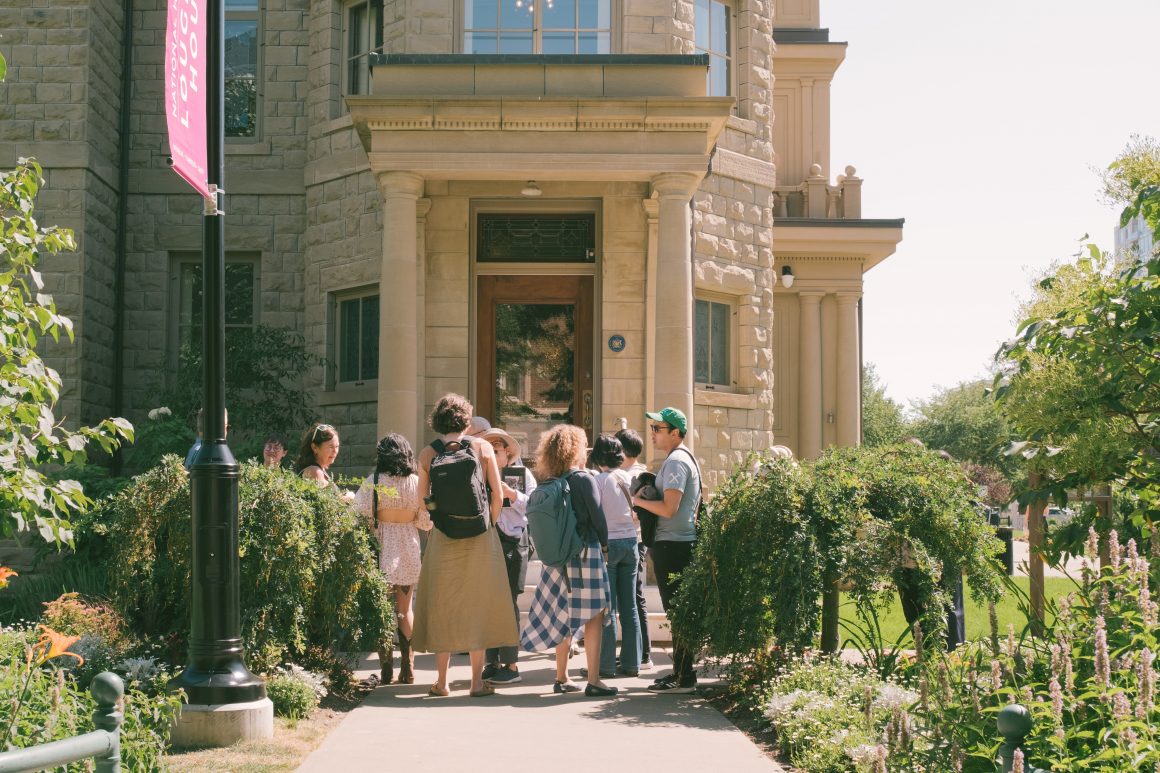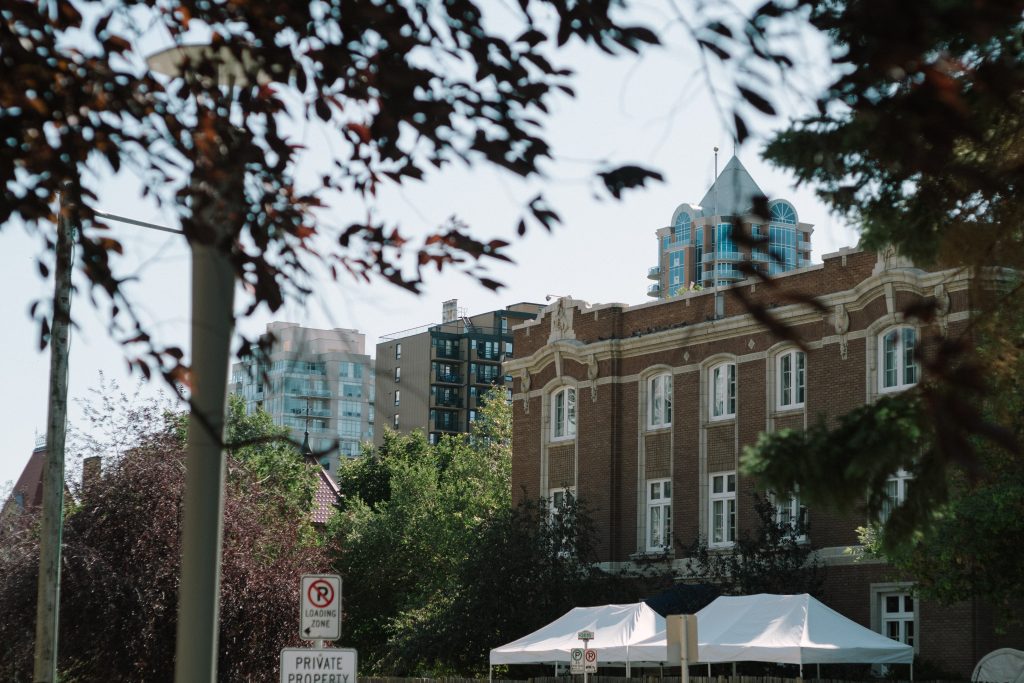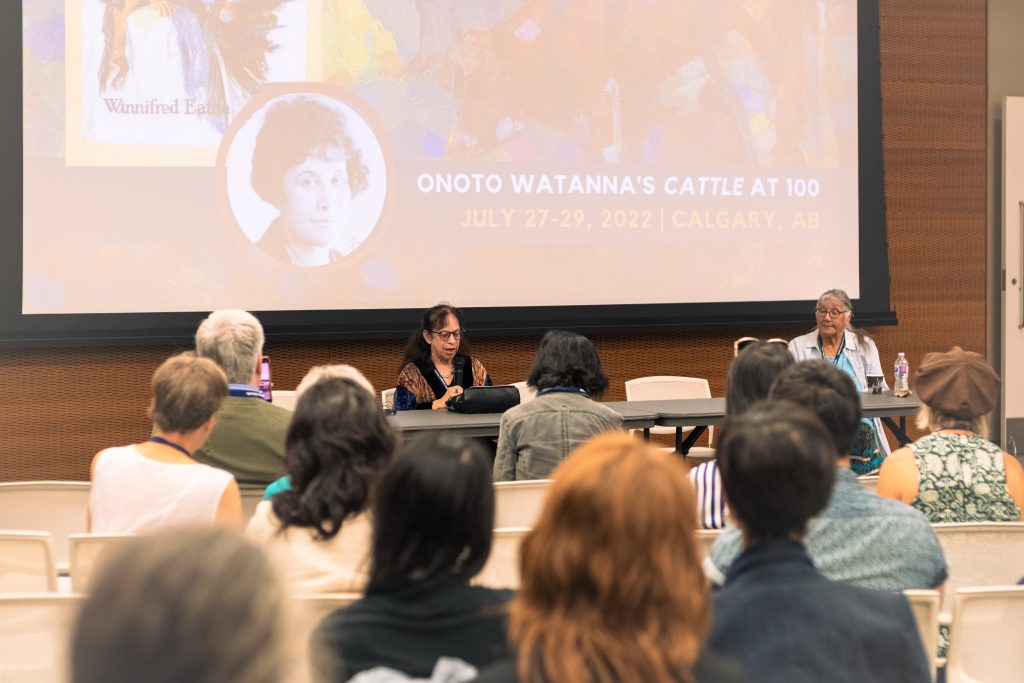
Winnifred Eaton’s legacy lives on through Onoto Watanna’s Cattle @ 100
By Ansharah Shakil, August 9 2023—
On the 100th anniversary of celebrated Canadian writer Winnifred Eaton’s Alberta-based novel Cattle, Onoto Watanna’s Cattle @ 100, a conference discussing her legacy, took place on July 27 until July 30 at the University of Calgary and Calgary Chinese Cultural Centre, gathering scholars and descendants from around the world.

The daughter of an English merchant and a Chinese performer who was born and raised in Montreal, Eaton was a novelist whose legacy was important for Alberta, Calgary and the University of Calgary in particular. Not only did she move to Alberta to write books set there and write for the Calgary Herald, but she also helped found Calgary’s Little Theatre and was the Calgary Branch President of the Canadian Authors Association. U of C’s Reeve Theatre was even built in her honour after her death.
The conference started off with a private walking tour through the Calgary city haunts of Eaton, who lived on and off in Alberta in the 1920s and 30s. It began at Lougheed House, originally home to Lady Lougheed, a mixed-race patron of the arts and friend of Eaton’s. The tour guide took the crowd through Eaton’s past homes, from the Bow River to Scarborough to Elbow Park to the Beltline to Mount Royal.
With tidbits and word-of-mouth stories about Eaton’s life — like mentions of her feud with a young novelist and with the woman who her husband would have an affair with — the tour was an excellent way to learn about who Eaton really was, and what she meant to Calgary.
Eaton once wrote of Alberta that it was “a land of romance” and that it “appeals to the imagination; it stirs something into restless activity; it keeps one on tiptoe. […] No writer could live in such an environment and not become obsessed with a desire to capture some of our golden sunshine and imprison it in the pages of a book.”
She wanted to call Calgary “the city of sunlight” but she once gave creative young people the advice to get out of Calgary. She loved and hated this city. Eaton was full of conflicted feelings about it like many of us living here are. But it was an important place for her — she would constantly come back to it. She built her career and her community here, and she helped the city get national recognition as a literary centre in the 1920s. It’s only fitting for a conference celebrating her Alberta-based novel to take place in Calgary.

The conference was book-ended by a walking tour, one on July 26 — pre-conference, and one on July 31— post-conference. Attendees were officially introduced to the conference at the Taylor Family Digital Library at U of C. After opening remarks from elders and scholars, Eaton’s granddaughter and biographer Diana Birchall gave a speech on her grandmother, explaining the story behind her biography as an Eaton descendant.
The story of the Eaton family itself is a fascinating one. Eaton herself has often been seen as the “bad sister” of the Eaton family compared to her “good” sister Edith. Edith was a journalist who wrote stories of Chinese immigrants while Eaton published Japanese romances under the problematic faux Japanese name Onoto Watanna, passing herself off as Japanese with her mixed Chinese-British ancestry despite never even having been to Japan. Eaton later expressed remorse for her actions, but it’s an uncomfortable aspect of her life.
Still, Eaton was an important writer with a long and lengthy career spanning fiction, journalism and a screen-writing career. There’s a lot to talk about when it comes to her life and her career, and the Winnifred Eaton Conference valiantly rose to the task.
Many scholarly panels and public lectures discussing Eaton’s work took place, like one about the importance of food and culture in Eaton’s writing. The conference also included a tour of the Reeve Theatre, a presentation on Chinese genealogy, and a multi-course traditional Chinese banquet at the Calgary Chinese Cultural Centre — inspired by the fact that Winnifred, with her sister Sarah Bosse, wrote the first North American-published book about Asian cuisine — and a transcription workshop that allowed attendees to help transcribe Eaton’s works for the Winnifred Eaton archive.
There were also public screenings of Phantom of the Opera and Golden Gate Girls. During Eaton’s Hollywood career, she wrote the Universal Studios’ adaptation of Gaston Leroux’s 1910 novel Phantom of the Opera. Golden Gate Girls, meanwhile, was shown at the Calgary Chinese Cultural Centre as it is a documentary about Chinese American filmmaker Esther Eng, the first woman to direct Chinese-language films in the U.S., by S. Louisa Wei.
With so many events held throughout the conference, there’s no doubt that Eaton’s culture and written work was honoured and discussed in an enlightening manner.
“She is afraid she would not be remembered,” Diana Birchall said to the crowd of conference attendees, speaking of her grandmother’s life and letters. But we can see clearly that Eaton is not and will not be forgotten — the impacts of her writing and her life are remembered by more people than she might ever have expected when she first wrote a novel set in Alberta called Cattle.
